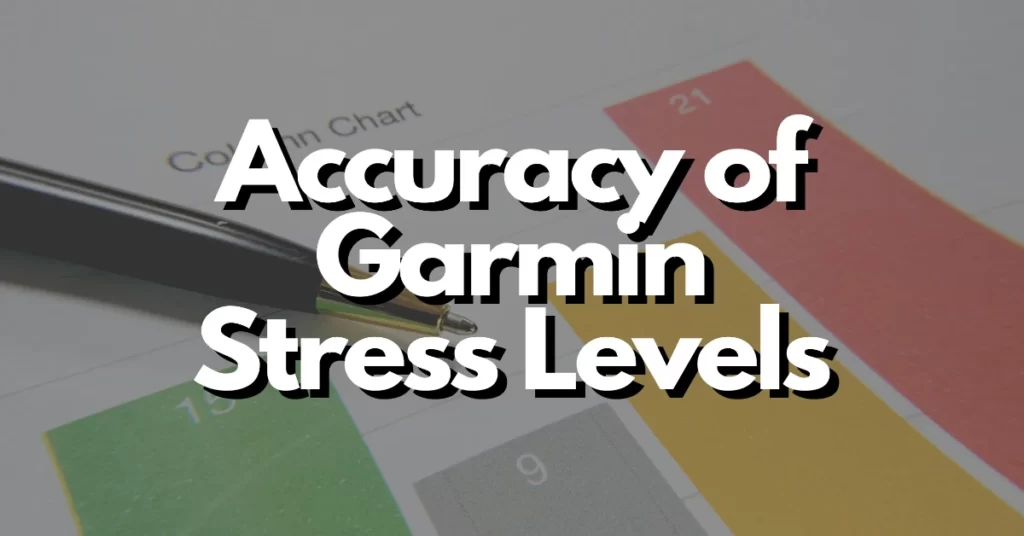In recent years, wearable technology has become increasingly popular, offering various features to monitor and track our health and well-being. One such feature is stress level tracking, and Garmin, a prominent brand in the wearable market, claims to provide accurate stress level measurements. But how reliable are these stress readings?
In this blog post, we will examine the accuracy of Garmin stress levels and explore the science behind stress measurement. By understanding the technology and its limitations, you can make informed decisions about using Garmin devices for stress management. Let’s delve into the world of stress tracking and discover if Garmin’s stress levels truly live up to their claims.

Table of Contents
Understanding the Science Behind Garmin’s Stress Level Measurements:
Garmin’s stress level measurements are based on heart rate variability (HRV), a physiological indicator of stress. HRV refers to the variations in time intervals between successive heartbeats and reflects the body’s ability to adapt to stressors. Garmin devices utilize algorithms that analyze HRV data, along with other metrics such as heart rate, sleep patterns, and activity levels, to estimate stress levels.
By measuring HRV, Garmin aims to provide users with insights into their stress response and promote awareness of stress management. Understanding the scientific basis of Garmin’s stress level measurements can help users interpret the data and make informed decisions about their well-being.
Comparing Garmin Stress Levels with Other Stress Assessment Methods:
While Garmin stress levels can provide valuable insights, it’s important to recognize that stress assessment methods can vary across devices and platforms. Comparing Garmin stress levels with other stress assessment methods, such as self-reported questionnaires or clinical assessments, can provide a more comprehensive understanding of one’s stress response.
Each method has its own strengths and limitations, and individuals may find certain approaches more suitable for their specific needs. By considering multiple sources of stress assessment, individuals can gain a more well-rounded perspective on their stress levels and tailor their stress management strategies accordingly.
Exploring the Factors That Can Impact the Accuracy of Garmin Stress Levels:
The accuracy of Garmin stress level measurements can be influenced by various factors. For instance, physiological factors such as hydration levels, caffeine intake, or certain medications may affect heart rate variability and subsequently impact stress level readings.
Additionally, external factors like environmental conditions, physical activity, and sleep quality can influence stress levels and potentially affect the accuracy of Garmin measurements. It’s important to be mindful of these factors when interpreting stress level data from Garmin devices.
Understanding the potential sources of variability can help users contextualize their stress levels and make more informed decisions about stress management strategies.
Real-Life Experiences: User Perspectives on the Accuracy of Garmin Stress Level Readings:
Real-life user experiences can provide valuable insights into the accuracy of Garmin stress level readings. Hearing from individuals who have used Garmin devices and compared their stress level measurements with their subjective experience of stress can offer a more nuanced understanding of the device’s effectiveness.
User perspectives can shed light on how well Garmin stress levels align with their perceived stress levels, whether the measurements accurately reflect their stress response, and how the information has helped them manage stress. By considering real-life experiences, individuals can gain a broader understanding of the practical implications and limitations of Garmin stress level measurements.
Conclusion
While Garmin’s stress level tracking feature may provide valuable insights, it is important to approach the data with a critical mindset. Factors such as individual variability, environmental influences, and the limitations of wearable technology can affect the accuracy of stress level measurements.
It is always advisable to use Garmin’s stress readings as a reference point rather than a definitive measure of your stress levels. Combining the data with self-awareness, personal judgment, and other stress management techniques can offer a more comprehensive approach to stress reduction and overall well-being.
Remember, the most effective way to manage stress is by cultivating healthy habits, seeking support when needed, and being attuned to your body’s signals.

